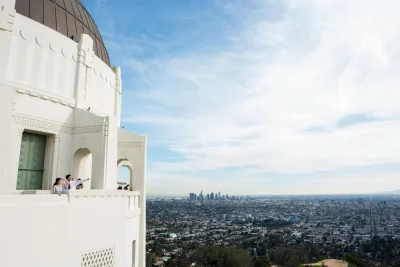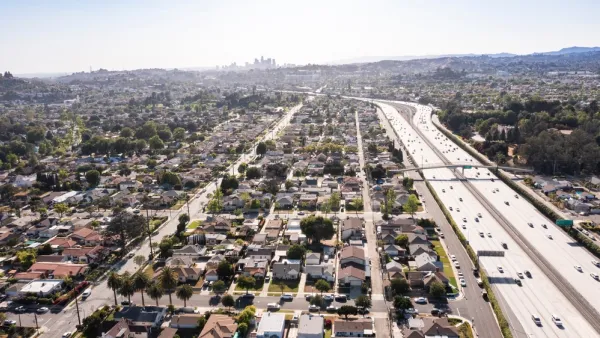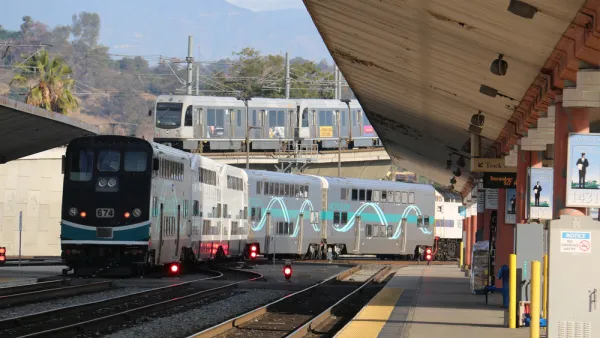Most people would probably guess that the world's most sprawling city is located in the United States, and according to most measures, they'd be right.

Douglas Murphy examines the issue of sprawl and its effects, devoting significant word count to an argument for sprawl as a destructive force for the environment and for society.
After acknowledging that there is "no reliable combined measure of sprawl, and many geographers shy away from using the term because of its negative connotations," Murphy still surveys some of the most prominent attempts to measure sprawl using a scientific method.
First mentioned is the Demographia's annual World Urban Areas [pdf] survey, which shows American areas completely dominating the low densities: "the lowest density large cities are Atlanta, Boston, St Louis, Orlando and San Juan. The only real competition the Americans have is with places like Brisbane, Australia, or Quebec City, Canada, both countries with a lot of land and a love of the car."
Second among the sprawl studies listed by Murphy is the work of researchers at Smart Growth America, which introduces "mixes of use, presence of 'centres', and accessibility as other factors," into their measure of sprawl. That study places southern cities like Atlanta, Nashville and Memphis at the bottom of the sprawl list.
Finally, Murphy cites the work of Thomas Laidley at NYU, who recently created a Sprawl Index using aerial imagery. "One remarkable aspect was the discovery that Los Angeles is now the densest urban centre in the US," explains Murphy.
That final mention doesn't reconcile with Murphy's opinion, however, of Los Angeles as "the ultimate sprawling city." Murphy writes:
Think of the classic view from the Griffith Observatory, looking down at that vast carpet of concrete with its threads of light from the clogged highways. LA is decentred, potentially limitless, and stands for everything terrible about what happens when cities are developed without planning: swathes of low density housing, completely severed by roads, the whole terrain plagued by filthy smog.
Thus, Murphy produces a perhaps surprising pro-planning argument from this critique of a century's worth of planning practice.
FULL STORY: Where is the world's most sprawling city?

Analysis: Cybertruck Fatality Rate Far Exceeds That of Ford Pinto
The Tesla Cybertruck was recalled seven times last year.

National Parks Layoffs Will Cause Communities to Lose Billions
Thousands of essential park workers were laid off this week, just before the busy spring break season.

Retro-silient?: America’s First “Eco-burb,” The Woodlands Turns 50
A master-planned community north of Houston offers lessons on green infrastructure and resilient design, but falls short of its founder’s lofty affordability and walkability goals.

Test News Post 1
This is a summary

Analysis: Cybertruck Fatality Rate Far Exceeds That of Ford Pinto
The Tesla Cybertruck was recalled seven times last year.

Test News Headline 46
Test for the image on the front page.
Urban Design for Planners 1: Software Tools
This six-course series explores essential urban design concepts using open source software and equips planners with the tools they need to participate fully in the urban design process.
Planning for Universal Design
Learn the tools for implementing Universal Design in planning regulations.
EMC Planning Group, Inc.
Planetizen
Planetizen
Mpact (formerly Rail~Volution)
Great Falls Development Authority, Inc.
HUDs Office of Policy Development and Research
NYU Wagner Graduate School of Public Service




























